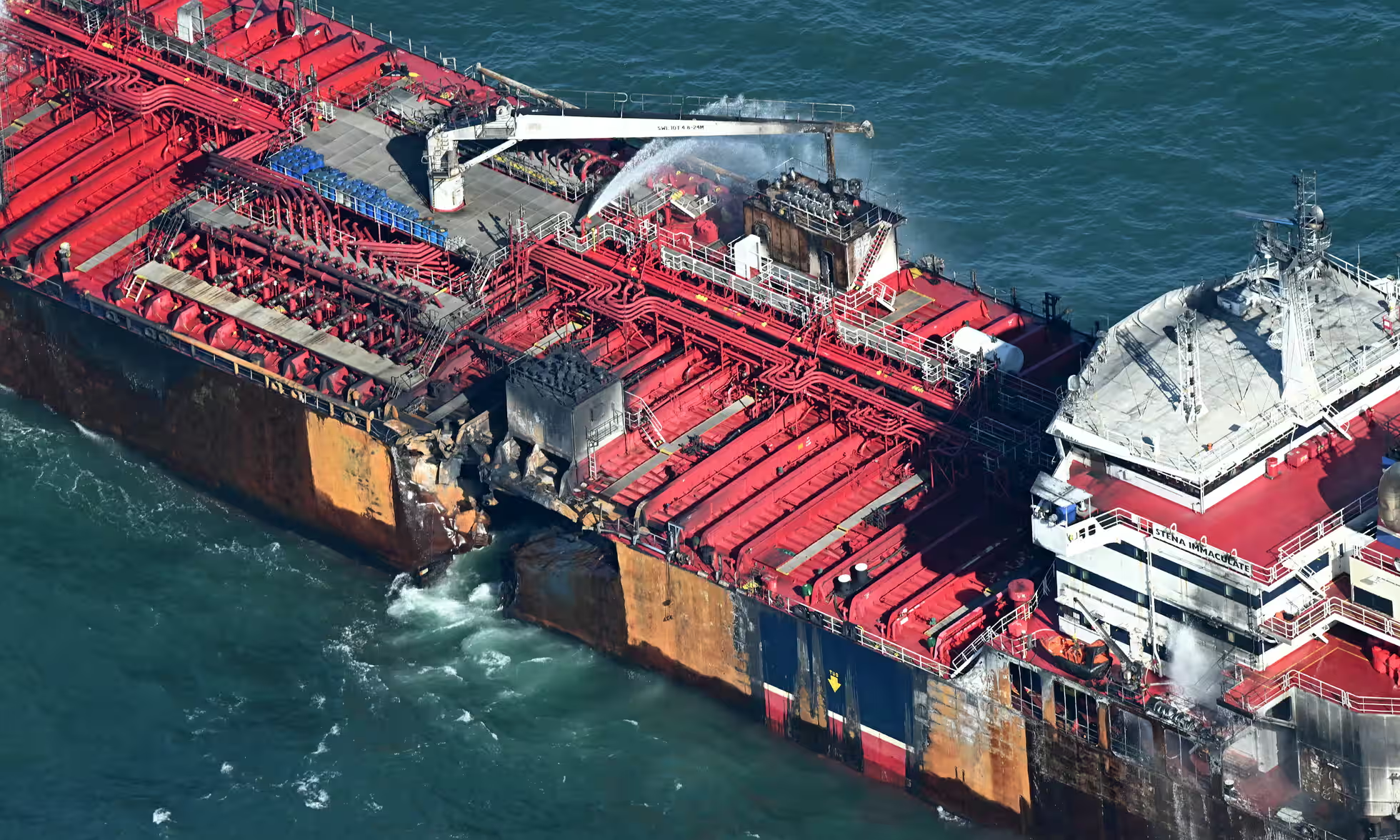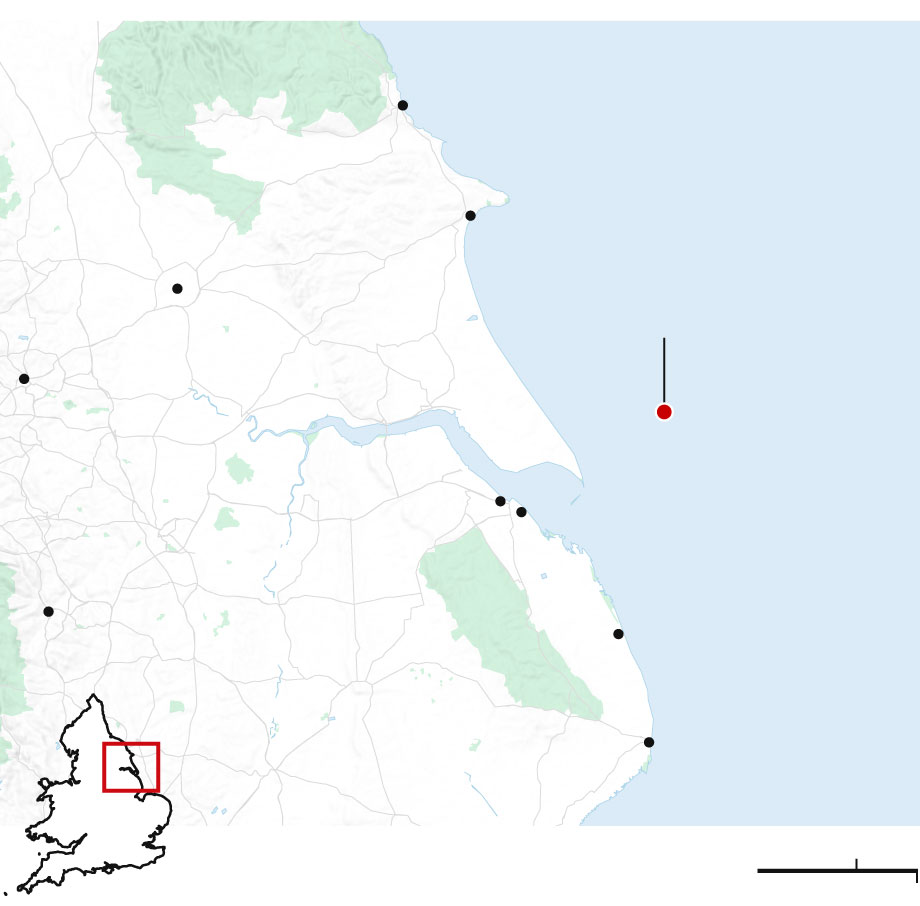Courtesy The Guardian “Experts warn of North Sea collision’s ‘devastating’ impact on marine life” (11 Mar 2025)
Experts warn of North Sea collision’s ‘devastating’ impact on marine life
Highly toxic jet fuel leaking from oil tanker threatens local ecosystems as investigations begin into collision’s cause.

Leaking fuel from the collision between a cargo ship and oil tanker in the North Sea would have a “devastating” impact on marine life as investigations began into the cause of the incident.
Fires continued to burn onboard both vessels 24 hours after the collision off the coast of Yorkshire on Monday morning. A search for a missing crew member was called off overnight.
Downing Street said no evidence of foul play had been found.
Environmental experts warned that the jet fuel leaking from the cargo ship is toxic for humans and wildlife.
“the impact of that on life in the oceans would be devastating”.
An academic in oceanography said the Jet fuel had a “much higher toxicity” than crude oil and that “the impact of that on life in the oceans would be devastating”.

West of the collision site is the Humber Estuary and The Wash, one of the UK’s most important ecosystems which is home to hundreds of thousands of seabirds, said Sandy Luk, the chief executive of the Marine Conservation Society.
- “Thousands of seals and their pups call this stretch of coast home at this time of year, and there are protected areas nearby for harbour porpoises and special marine habitats,” she added.
- “Our biggest concern to the environment right now is the degree to which these chemicals accumulate or disperse, both into the water column and the distance they travel. This all depends on the weather, the currents and the extent of the spill.”
- Dr Paul Johnston, a senior scientist at the Greenpeace Research Laboratories at Exeter University, said: “The jet fuel that entered the water close to a breeding ground for harbour porpoises is toxic to fish and other sea creatures”.